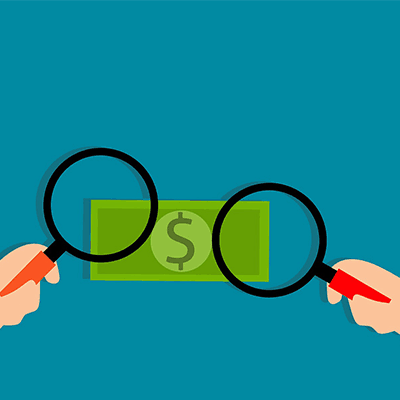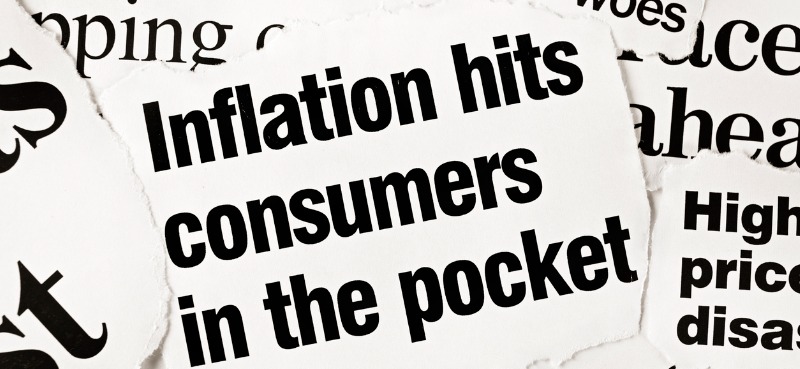In today’s volatile coronavirus market, generating safe income is more important than ever…
But many companies will be forced to cut or eliminate their dividends.
While the S&P 500 declined 33.9% from the February 19, 2020 top through its March 23 low, the decline in several high-dividend sectors—such as utilities, energy, and financials—was even worse.
This doesn’t mean income investors have been handed a bargain… Rather, the market indicated it’s skeptical about earnings growth and the sustainability of dividends for many of those companies.
Familiar names like Macy’s (M), Ford (F), and Boeing (BA) have already sharply cut or suspended their dividends… And it will likely get worse.
Regulators now suggest that banks might also be asked to suspend dividends for the time being. In Europe, this dividend suspension is already happening… In order to preserve capital, the European Central Bank recommends large European banks not pay dividends until at least October 2020.
Citigroup estimates that total dividends could be reduced by 50% in Europe… And according to Goldman Sachs, the U.S. could face a 25% reduction in payouts for the next 12 months.
In normal markets, dividend cuts are often telegraphed ahead of time (in the form of an abnormally high yield). But today’s market environment has made it almost impossible to anticipate all the potential dangers.
For a company to remain on the income radar, it should be able to weather three tests:
- Cash
- Debt
- Business strength
If it can pass these three tests, a dividend cut or elimination is much less likely.
Let me show you a few examples…
Double- and triple-digit gains in this market?Yep, Genia Turanova recently delivered 3 such trades to her Moneyflow Trader subscribers. Find out how you can make double- and triple-digit gains in today’s volatile market…
|
The most important factor in a company passing these tests is its financial strength: a high cash position, a low debt load, and, if applicable, investment-grade rated long-term debt.
The financial strength factor is backward-looking (i.e., it takes into account how well the company has been doing in the past few years).
But if a business entered 2020 with a lot of junk debt and a low cash balance to boot, it’s clearly not in a good position to survive this year and move into 2021 unscathed—not to mention retain its dividend program.
Even in an economy hit hard by the coronavirus, companies that pass the first two tests exist.
One good example is Microsoft (MSFT). It passes both financial strength tests with flying colors.
At the end of 2019, MSFT had more than $134 billion in cash and equivalents on its balance sheet—more than $17 per share in cash.
Even though MSFT has significant long-term debt ($63.4 billion) and even more in long-term liabilities… if it ever had to, it would be able to cover more than three-quarters (77%) of its long-term obligations from its cash on hand. And its debt carries the highest possible rating—which means that it should be able to borrow more, at low yields, if needed.
As a rule of thumb, look for steady, profitable, and financially disciplined businesses—these are much more likely to have cash on the balance sheet and low debt.
As for the business strength test…
In this environment, a company that delivers an essential product or service is clearly a better bet than a company where consumption could be significantly postponed or delayed.
Take Procter & Gamble (PG) for example. This maker of Tide, Pampers, and Puffs has been enjoying strong sales lately—it maintained and even increased its market share in eight out of 10 product categories. As a result, it’s just given its shareholders a very nice gift—a 6% dividend hike. It’s safe to say that PG—like many of its consumer staples peers—is set to remain a reliable payer.
In this market, I like companies with a dominant industry position (like PG)… or a product that can’t be easily replaced. I also like companies with a significant cash cushion to shield the business and investors from uncertainties, like MSFT.
Some companies have cash… others operate an essential and growing business… and some will benefit from their industry dominance.
Now is not the time to take large risks, especially if you need income. Stick with companies that pass these tests of quality—and stay away from abnormally high yields.
Note from Frank: If you’re searching for secure, steady income, Genia’s about to launch a product that will do all the work for you. And based on her track record, I guarantee this letter will be best in its class…
In March, during one of the worst months in market history, Genia’s Moneyflow Trader subscribers were booking triple-digit gains. I’m not talking about one trade, guys—I’m talking five different trades… including one for 508% gains.
Learn more about Moneyflow Trader—and how you can get Genia’s new income service service FREE as soon as it launches.


![[View Report]](https://www.curzioresearch.com/wp-content/uploads/2020/04/frank_578.jpg)





















